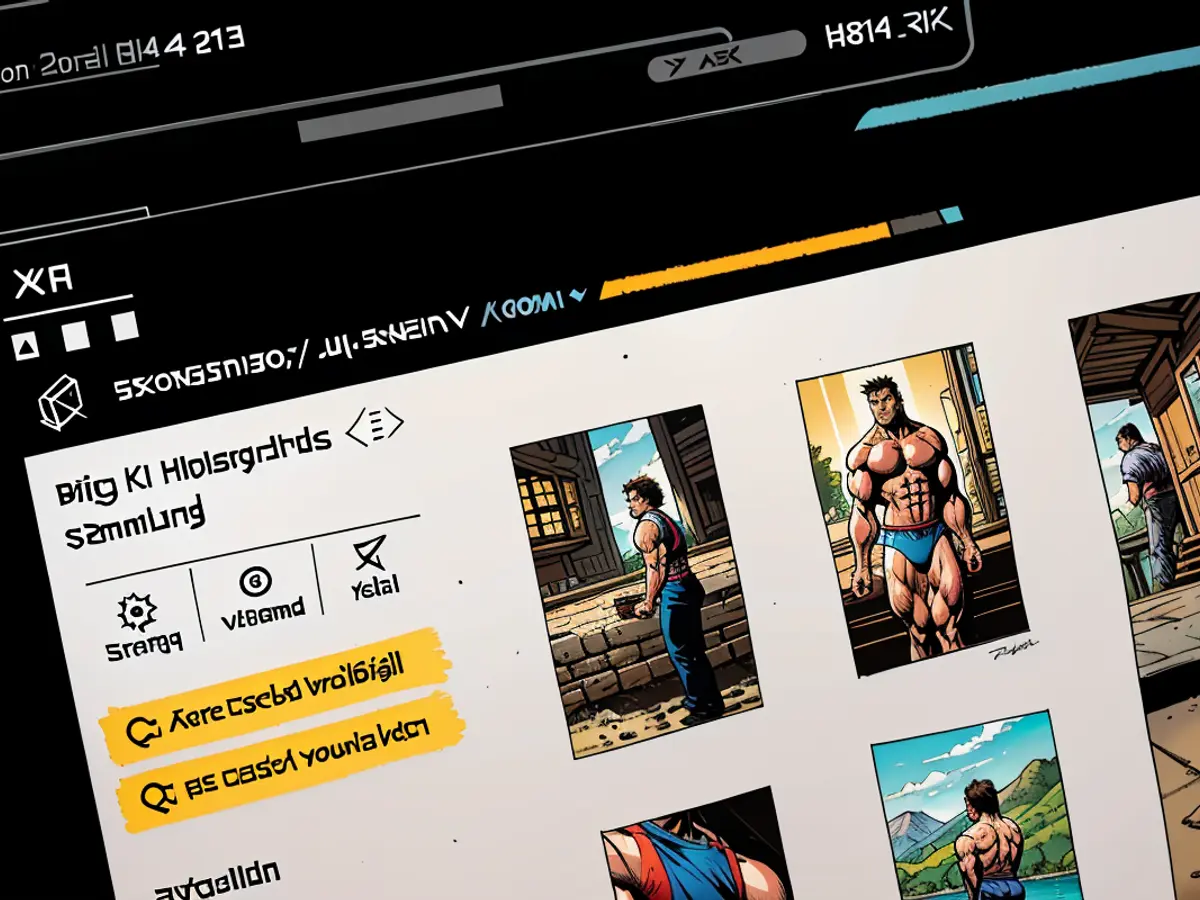- Infiltrating Fashion's Realm: The Triumph of AI in the Sartorial Sphere
The virtual model's attire fits flawlessly, her gaze is keen, and her hair appears voluminous. She's too beautiful to be real - and she isn't. The flawless woman in the digital image is a creation, manufactured using Artificial Intelligence (AI). when Spanish fashion house Mango showcased its summer youth campaign featuring an AI model in July, even Marco Sinervo, CEO of one of Germany's largest model agencies, was taken aback. "I didn't recognize that it wasn't a real model," he confesses in an interview with dpa.
According to a survey by market research institute Appinio, Sinervo wasn't alone in this deception. 72 percent of the 1,000 respondents found the representation of the model and the clothing in the AI campaign to be realistic. "We use AI daily for clients without it being noticeable," says Michael Berger, CEO of Beyond Studio, a design collective that heavily relies on AI in photo productions. For companies, AI offers numerous advantages: instead of traveling around the world for shootings, backgrounds can be created digitally. This not only saves time and costs but also protects the environment.
"Ideally, replace the whole model"
For clients, it would even be cheaper not to pay for a model at all, explains Berger. "AI should ideally replace the whole model." Currently, however, it is still necessary to photograph clothing and accessories on a body, as AI cannot represent them accurately yet. Therefore, so-called body models are often used, whose heads are later digitally replaced. This process is still as expensive as conventional photography. "As soon as AI can automate this, it will be cheaper," Berger adds.
Germany's fashion world is also betting on AI, such as the Otto Group. Since spring 2024, the company has been using AI-generated models for product presentations. Whether swimwear on the beach or sportswear in the gym: "An AI model can be placed in various outfits and diverse environments in seconds," a spokesperson says. The online retailer Zalando also uses generative AI in the content area - "mainly for creating background images for product photos," it says on request.
"AI is not sexy"
Will models and photographers soon be obsolete? Norbert Hansen, chairman of the board of the Association of Licensed Model Agencies (Velma), sees a grim future for the modeling industry: "If, above all, technical development progresses quickly, there will be very few agencies left in the next few years, in my estimation." Many online shops photograph numerous outfits daily, with the product being the focus, not the model. "These motives could be replaced entirely by AI in the long run."
Sinervo disagrees. "AI is not sexy," the artist intermediary emphasizes. For him, the use of AI avatars is more of a regression than an innovation. "People have a desire for reality in an increasingly superficial and faster world." Technically generated models would convey a "completely inhuman beauty ideal." Brands should be "honest, approachable, and authentic," especially to reach a young target audience.
Similarly, Axl Jansen, a fashion photographer who has already worked with several stars and models, sees it this way. "At the latest by the third or fourth AI campaign, a certain fatigue will set in." He compares the current hype around AI to previous trends in photography that were then replaced by others. Many younger photographers would even return to analog photography. "And between us: Which client doesn't want authentic images that are also legally secure?"
Who owns the rights to AI-generated images is unclear, says Jansen. Because there is no legal regulation in Germany. For models, image rights are an important source of income, as they usually sell them for limited periods of time, says Berger. "But many customers want all rights for eternity and worldwide, which drives up model fees." With AI, companies could change faces so that they no longer have to pay for rights.
An own AI avatar could enable models to "sell" themselves several times a day - and thus also increase their income, explains Berger. Because their faces would be available in digital form to the customer and they would not have to be photographed for shootings themselves. But as long as the legal situation is unclear, that makes little sense. According to Sinervo, they also have no interest in working as AI models, as their exclusivity would suffer. "If Kendall Jenner suddenly appears as an AI model for a no-name brand, she would quickly no longer be the celebrated supermodel."
Mandatory labeling: The end of the AI hype?
According to the Appinio survey, the vast majority of respondents (81 percent) want clear labeling of AI-generated content. This is also supported by Inken Paland, who specializes in AI on social media: "We must recognize AI models and understand that they are not real people - because they will encounter us more and more in the future."
Sinervo, however, believes that with a labeling requirement, the AI hype in the fashion industry will fade away quickly: "That will give AI images and the image of the brands that use AI a bitter taste." Paland sees it differently: "People tend to resist new technologies until they become normal." In her opinion, AI avatars will become just as everyday "as annoying cookies on websites."
Within the fashion industry, AI models like the one showcased by Mango offer numerous advantages, such as saving time and costs for photoshoots and protecting the environment. Michael Berger, CEO of Beyond Studio, suggests that AI could potentially replace entire models in the future. However, Jansen, a fashion photographer, believes that the hype around AI will dwindle as people grow tired of it, comparing it to previous photography trends. He also highlights the importance of authentic images for brands, particularly when trying to reach a younger audience.






